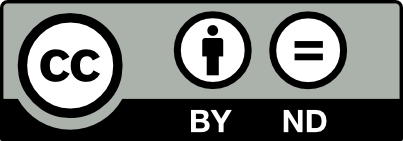[Ensembles, groupes et champs définissables dans des espaces vectoriels avec une forme bilinéaire]
We study definable sets, groups, and fields in the theory of infinite-dimensional vector spaces over an algebraically closed field of any fixed characteristic different from 2 equipped with a nondegenerate symmetric (or alternating) bilinear form. First, we define a notion of dimension of a definable set, which enjoys many properties of Morley rank in strongly minimal theories. Then, using this dimension notion as the main tool, we prove that all definable groups are (algebraic-by-abelian)-by-algebraic. We conclude that every definable field is definably isomorphic to the field of scalars of the vector space. We derive some other consequences of good behaviour of the dimension, e.g. every generic type in any definable set is a definable type; every set is an extension base; every definable group has a definable connected component.
We also prove analogous results working over real closed fields.
Nous étudions des ensembles, des groupes et des corps définissables dans la théorie des espaces vectoriels de dimension infinie sur un corps algébriquement clos de caractéristique différente de 2 munis d’une forme bilinéaire symétrique (ou alternée) non dégénérée. Tout d’abord, nous définissons une notion de dimension d’un ensemble définissable, qui possède de nombreuses propriétés de rang de Morley dans les théories fortement minimales. Ensuite, en utilisant cette notion de dimension comme outil principal, nous prouvons que tous les groupes définissables sont (algébriques-par-abéliens)-par-algébriques. Nous concluons que tout corps définissable est définissablement isomorphe au corps des scalaires de l’espace vectoriel. Nous déduisons d’autres conséquences du bon comportement de la dimension, par exemple chaque type générique dans tout ensemble définissable est un type définissable ; chaque ensemble est une base d’extension ; chaque groupe définissable a une composante connexe définissable.
Nous démontrons également des résultats analogues en travaillant sur des corps réels clos.
Révisé le :
Accepté le :
Publié le :
Keywords: Bilinear form, definable group, definable field
Mots-clés : Forme bilinéaire, groupe définissable, corps définissable
Dobrowolski, Jan 1, 2
 CC-BY-ND 4.0
CC-BY-ND 4.0
@article{AIF_2023__73_5_1795_0,
author = {Dobrowolski, Jan},
title = {Sets, groups, and fields definable in vector spaces with a bilinear form},
journal = {Annales de l'Institut Fourier},
pages = {1795--1841},
publisher = {Association des Annales de l{\textquoteright}institut Fourier},
volume = {73},
number = {5},
year = {2023},
doi = {10.5802/aif.3559},
language = {en},
url = {https://aif.centre-mersenne.org/articles/10.5802/aif.3559/}
}
TY - JOUR AU - Dobrowolski, Jan TI - Sets, groups, and fields definable in vector spaces with a bilinear form JO - Annales de l'Institut Fourier PY - 2023 SP - 1795 EP - 1841 VL - 73 IS - 5 PB - Association des Annales de l’institut Fourier UR - https://aif.centre-mersenne.org/articles/10.5802/aif.3559/ DO - 10.5802/aif.3559 LA - en ID - AIF_2023__73_5_1795_0 ER -
%0 Journal Article %A Dobrowolski, Jan %T Sets, groups, and fields definable in vector spaces with a bilinear form %J Annales de l'Institut Fourier %D 2023 %P 1795-1841 %V 73 %N 5 %I Association des Annales de l’institut Fourier %U https://aif.centre-mersenne.org/articles/10.5802/aif.3559/ %R 10.5802/aif.3559 %G en %F AIF_2023__73_5_1795_0
Dobrowolski, Jan. Sets, groups, and fields definable in vector spaces with a bilinear form. Annales de l'Institut Fourier, Tome 73 (2023) no. 5, pp. 1795-1841. doi : 10.5802/aif.3559. https://aif.centre-mersenne.org/articles/10.5802/aif.3559/
[1] Model theoretic versions of Weil’s theorem on pregroups, The model theory of groups (Notre Dame, IN, 1985–1987) (Notre Dame Math. Lectures), Volume 11, Univ. Notre Dame Press, Notre Dame, IN, 1989, pp. 177-185 | MR | Zbl
[2] Fields definable in the free group, Trans. Amer. Math. Soc. Ser. B, Volume 6 (2019), pp. 297-345 | DOI | MR | Zbl
[3] On -dependent groups and fields II, Forum Math. Sigma, Volume 9 (2021), e38, 51 pages | DOI | MR | Zbl
[4] On model-theoretic tree properties, J. Math. Log., Volume 16 (2016) no. 2, 1650009, 41 pages | DOI | MR | Zbl
[5] Independence over arbitrary sets in theories, Ann. Pure Appl. Logic, Volume 173 (2022) no. 2, 103058, 20 pages | DOI | MR | Zbl
[6] Definable groups in characteristic 0 are algebraic groups, Abstracts Amer. Math. Soc. (1982) no. 3, p. 142
[7] Weil’s group chunk theorem: a topological setting, Illinois J. Math., Volume 34 (1990) no. 1, pp. 127-139 | DOI | MR | Zbl
[8] Tame topology and o-minimal structures, London Mathematical Society Lecture Note Series, 248, Cambridge University Press, Cambridge, 1998, x+180 pages | DOI | MR | Zbl
[9] Superrosy dependent groups having finitely satisfiable generics, Ann. Pure Appl. Logic, Volume 151 (2008) no. 1, pp. 1-21 | DOI | MR | Zbl
[10] Groups definable in ordered vector spaces over ordered division rings, J. Symbolic Logic, Volume 72 (2007) no. 4, pp. 1108-1140 | DOI | MR | Zbl
[11] Stability, simplicity, and the model theory of bilinear forms, Ph. D. Thesis, University of Manchester (1999)
[12] Quadratic forms in infinite-dimensional vector spaces, Progress in Mathematics, 1, Birkhäuser, Boston, Mass., 1979, xii+419 pages | MR | Zbl
[13] Strongly minimal expansions of algebraically closed fields, Israel J. Math., Volume 79 (1992) no. 2-3, pp. 129-151 | DOI | MR | Zbl
[14] On Kim-independence, J. Eur. Math. Soc. (JEMS), Volume 22 (2020) no. 5, pp. 1423-1474 | DOI | MR | Zbl
[15] Some model theory of Polish structures, Trans. Amer. Math. Soc., Volume 362 (2010) no. 7, pp. 3499-3533 | DOI | MR | Zbl
[16] On -categorical theories of fields, Fund. Math., Volume 71 (1971) no. 1, p. 1-25. (errata insert) | DOI | MR | Zbl
[17] Groups and fields interpretable in separably closed fields, Trans. Amer. Math. Soc., Volume 344 (1994) no. 1, pp. 361-377 | DOI | MR | Zbl
[18] On groups and fields definable in -minimal structures, J. Pure Appl. Algebra, Volume 53 (1988) no. 3, pp. 239-255 | DOI | MR | Zbl
[19] Definability and definable groups in simple theories, J. Symbolic Logic, Volume 63 (1998) no. 3, pp. 788-796 | DOI | MR | Zbl
[20] Stable groups, Mathematical Surveys and Monographs, 87, American Mathematical Society, Providence, RI, 2001, xiv+129 pages (Translated from the 1987 French original by Moses Gabriel Klein) | DOI | MR | Zbl
[21] A course in model theory, Lecture Notes in Logic, 40, Association for Symbolic Logic, La Jolla, CA; Cambridge University Press, Cambridge, 2012, x+248 pages | DOI | MR | Zbl
[22] On algebraic groups of transformations, Amer. J. Math., Volume 77 (1955), pp. 355-391 | DOI | MR | Zbl
Cité par Sources :




